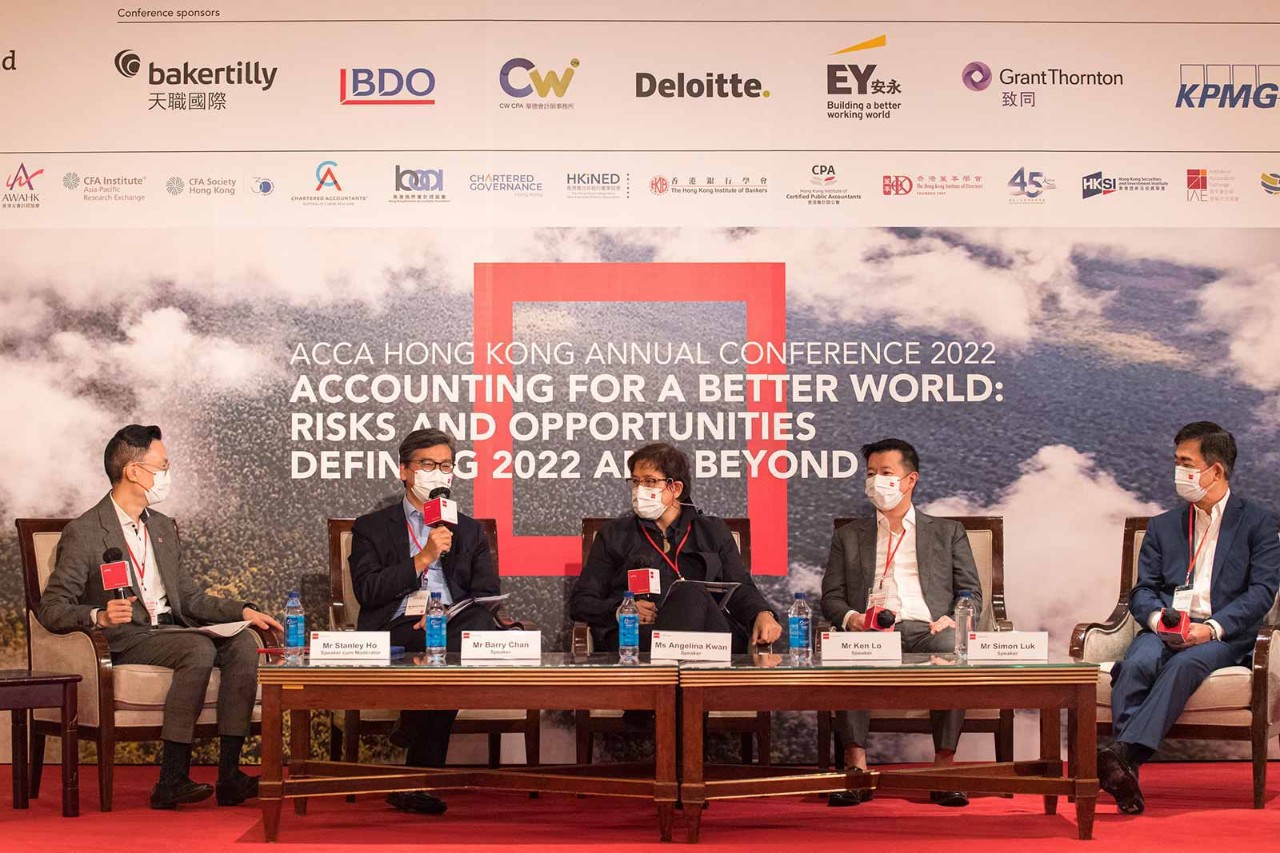
With Hong Kong set to strengthen regulations on its finance market, companies need to equip themselves for these changes, delegates learned at the recent ACCA Hong Kong annual conference.
Over the past year, regulations have evolved around market needs. A case in point is the number of updates to regulations and tax laws under way as the Hong Kong government explores the possibility of rolling out digital currency. The development of a regulatory framework around virtual or digital assets is an urgent priority.
‘Virtual assets are one of the areas where regulations are expected,’ Stanley Ho FCCA, co-chairman of the tax subcommittee at ACCA Hong Kong and a tax partner at KPMG, said at the conference.
‘I expect many of the digital assets that exist today and in the future to be regulated as securities’
‘Virtual assets are one of the areas where regulations are expected,’ Stanley Ho FCCA, co-chairman of the tax subcommittee at ACCA Hong Kong and a tax partner at KPMG, said at the conference.
Standard rules
One key area of focus is the development of a standardised set of rules to regulate digital assets, including products like security tokens and cryptocurrencies, said Ken Lo, deputy chairman at BC Technology Group. The Group does business in digital assets with financial institutions and received the first licence from the Securities and Futures Commission (SFC). Without clear rules, the industry uses cannot grow, Lo said.
When Lo first entered the digital asset industry in 2013, there were concerns around the potential for digital assets to be used in scams or in money laundering. His company approached the regulators in the hopes of developing the blockchain industry together and working on better regulations so that blockchain technology could be used to solve some traditional problems in areas such as finance.
‘I expect many of the digital assets that exist today and in the future to be regulated as securities,’ said Lo.
The financial market is a constantly evolving industry, catering to the ever changing needs of investors and institutions. We are living in the digital age now, with borderless transactions. Transactions today need to be done 24 hours a day, seven days a week, and not restricted to office hours only. More transactions will also increase the liquidity of the assets.
Unlike traditional securities, digital securities make it possible to reduce manual processes and time to verify authenticity, because blockchain-based digital securities rely on a consensus network and are not easily manipulated, said Lo. As the digital securities industry develops quickly, it is important to balance regulations and give the industry space to grow.

Better guidance
‘There would be more structured and clearer guidance and regulations for virtual assets providers, which could help the industry to grow and let players know where they stand,’ said Angelina Kwan, CEO at Stratford Finance.
Kwan recalled when she and Lo first started working with digital assets, they had very little regulatory guidance.
‘The SFC is working on the new introduction under the anti-money laundering ordinance. Anybody that is offering virtual assets or becoming a virtual assets provider will need to get a licence in due course. And there are some guidance notes, specifically for virtual assets providers,’ Kwan said.
With a clearer regulatory regime and a more developed industry, Kwan believes Hong Kong may become more attractive in the digital assets area.
Listing rules for SPACs
The discussion went beyond the development of regulations for digital assets, and into other areas, including new listing rules that are coming into effect this year, such as those related to special purpose acquisition companies (SPACs).
SPACs have become more popular in recent years because of the low-interest rate environment globally, which has made it easy to attract capital and attractive to invest it in SPACs, said Barry Chan FCCA, managing director, head of investment banking for Hong Kong and head of Asia-Australia Region at China International Capital Corporation.
‘The requirements for SPACs listing in Hong Kong tend to protect investors’
‘The requirements for SPACs listing in Hong Kong tend to protect investors. When conducting a SPAC IPO, they first need to raise money from 75 professional investors, 20 of which must be institutional professional investors, which is not needed in the US,’ said Simon Luk, chair of Asian practice and partner at Winston & Strawn. Hong Kong also requires promoters to get licences.
SPACs in Hong Kong also face another issue, which is the time it takes to go through delisting, a process that complicates the listing of the target company.
The strictness of the regulations could chip away at some of the advantages of listing through a SPAC.
Think ahead
Innovation and technology are key drivers for development. Hong Kong, as a financial centre, could offer companies access to capital markets and help develop the city’s technological base.
Lo said to boost the capital market for technology companies, HKEX should help foster companies to grow and attract more of them to list in the city.
Shanghai established the Shanghai Stock Exchange Science and Technology Innovation Board (STAR) market around three years ago, and more than 400 companies have listed on it.
‘The figure means that the market for technology companies is large, and Hong Kong needs to attract them,’ said Chan. ‘HKEX also offers chapter 18A, setting out additional listing conditions for biotech companies.’
For local technology development, Chan thinks the government should offer funds to promote technology development.
Having more professionals working with technology companies could also help.
‘Hong Kong has the best professionals. We can provide more education and cultivate the right people to attract technology companies to Hong Kong,’ said Kwan, adding that Hong Kong has a wealth of talent and infrastructure and more effort should be put into public relations to let the world know about the strengths of the special administrative region.
Luk agreed, noting that Hong Kong should encourage those who dare to experiment with technologies.
To improve Hong Kong’s competitiveness, Lo pointed out that, with regulatory clarity and clear rules of engagement for institutions, Hong Kong will be in a very strategic position to capitalise on the upcoming opportunities.
More information
Read these AB articles on the ACCA Hong Kong annual conference: ‘Strengthening Hong Kong’, ‘Building connections in Asia’, and ‘ESG compliance requires consistency’.
Watch a video of the panel discussion on regulatory changes in Hong Kong at the ACCA Hong Kong annual conference.
